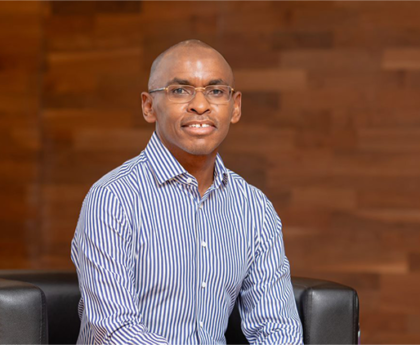The Kenya National Private Security Workers Union-KNPSWU, is demanding all employers to immediately implement a minimum salary of Ksh 30,000 for all employees as set by the Private Security Regulatory Authority ( PSRA).
KNPSWU Secretary General Dr. Isaac Andabwa, in an exclusive interview to KBC called on the government to compel employers to immediately implement the new minimum wage retroactively to the day it was effected .
“We cannot allow a situation whereby a investor is given an opportunity to invest in the country but he doest pay minimum wage, statutory deductions and he doesn’t pay government revenue, therefore Fazul should not be blamed but parliamentarians who threw out all regulations without putting in mind what’s happening.”said Andabwa
His sentiments came two days after the plaintiffs from Private security firms opted to drop the suit paving way for implementation of the proposed new reforms in the sector as stipulated by PSRA Director General Fazul Mohammed.
“We play paramount role in terms of supporting the government to securing the country and protecting the lives and property of therefore I want to tell the employers who went to court, we at labour leaders we don’t believe in moving to court we have industrial relations charter ,and there’s no need of moving to court before using available dispute
resolutions mechanism.”added Andabwa
However, some employers did not agree with the new regulations that were announced in November of last year, and they obtained High Court to halt its implementation.
According to PRSA published regulations a security guard should be paid a basic salary of KSh18,994.08,KSh2,849.11 for housing allowance, and KSh8,156.81 for overtime.
A KSh2 million fine was imposed in the legal notice for security companies who
hires guards but underpay their monthly salaries.
“The courts on 16th January gave good decision ,and I want to appeal to all employers in Kenya the barrier has now been removed and you need to begin enforcing and paying workers whats due to them without further delay.”said Andabwa
In compliance with Section 23 (2(d) of the Act, it is stipulated that all individual private security officers, also known as Private Security Guards, must complete security related training at an authorised institution in order to be eligible for registration and licensing.
It further states that, in order to be registered and licensed in line with Section 23(2)(d) of the Act, each individual private security officer (also known as a Private Security Guard) must complete security-related training at a facility approved by the relevant authority.
Instead of going straight to court, the SG advised all aggrieved parties in the sector to follow local dispute resolution procedures.
“I’m pleading with employers if there’s a problem, let’s talk it out before going to court over something that could have been resolved amicably,
In order to guarantee that the reform ajenda is effectively implemented, all government institutions must set an example by abiding by the rules, and as unions, we will fully assist Fazul in this endeavour.” Andabwa concluded
While the new laws are viewed by private security agencies as additional operating costs, workers are set to reap big given the high cost of living.







